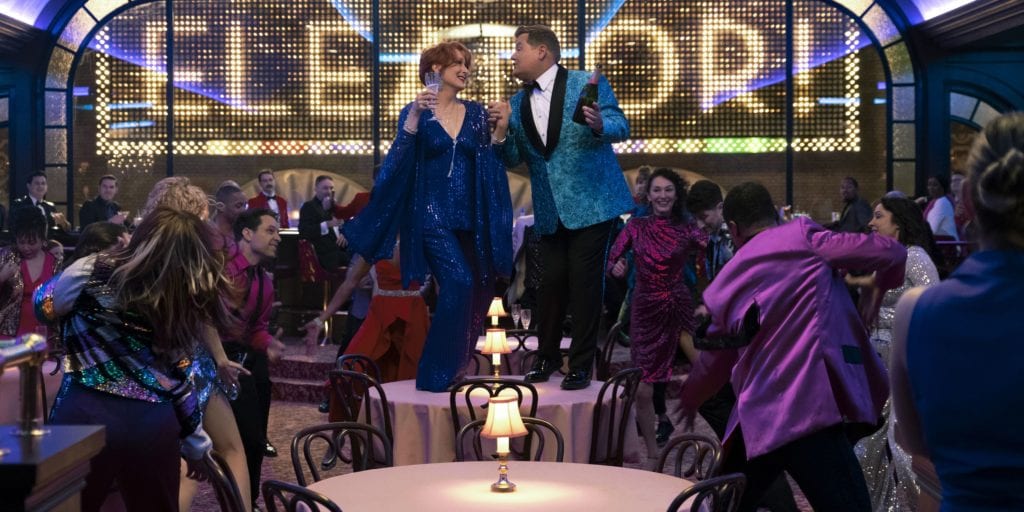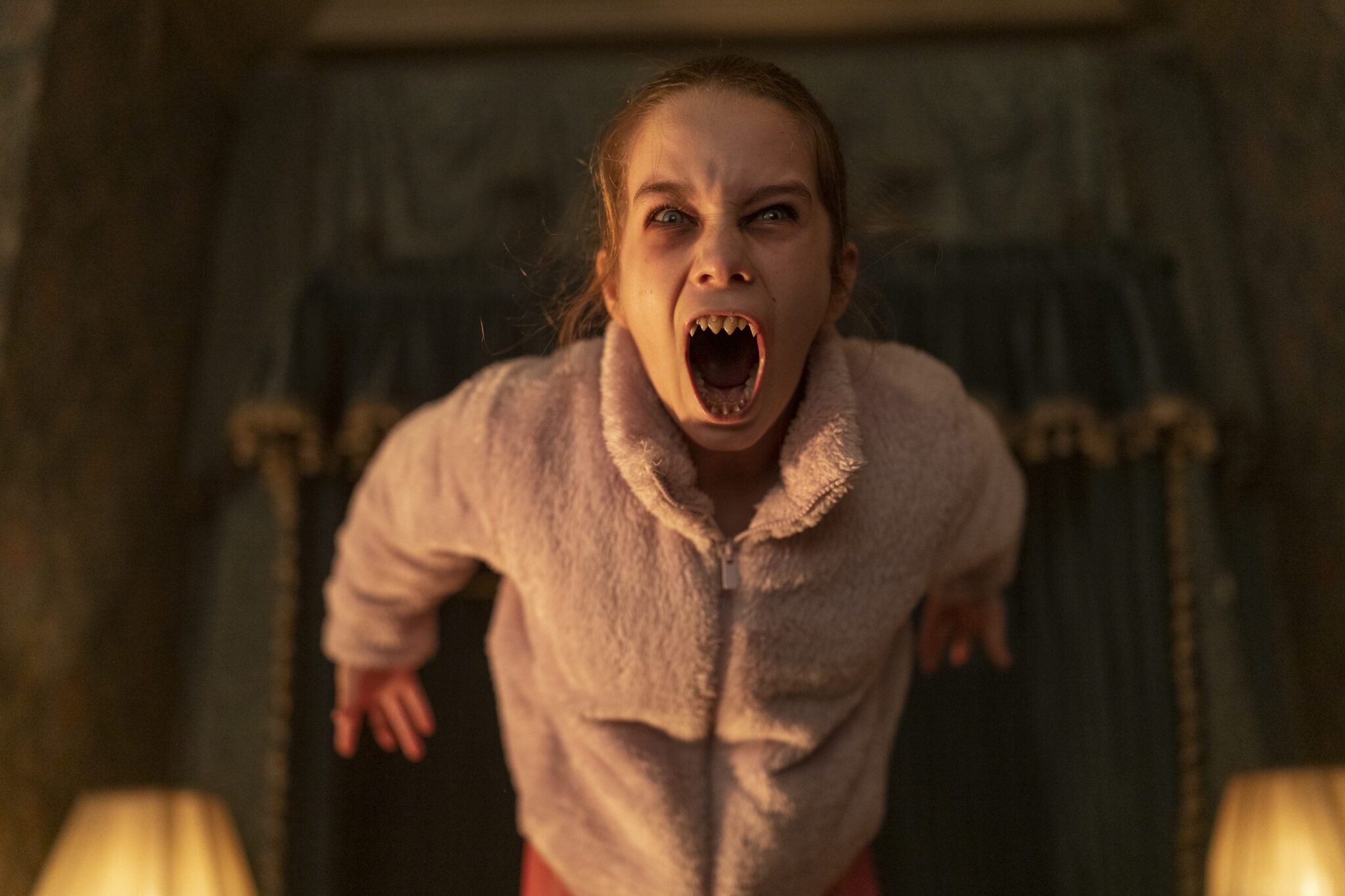There?s a certain mystique about the prom.
From ?prom-posals? to having the right date or transportation, proms are supposed to be nights of whimsy where everyone can celebrate their journey through high school. However, at the same time, they also continue to be infected with multiple levels of social politics as teens scramble to ensure that they have the perfect night. As such, what?s supposed to be a night of celebration for everyone can very quickly devolve into a night of exclusion and conformity.

With The Prom, director Ryan Murphy (American Horror Story, Glee) wants to believe that this can still be a night for everyone. Adapted from the Tony-nominated musical of the same name, The Prom tells the story of Indiana student Emma Nolan (Jo Ellen Pellman), a young woman who finds herself banned from her high school prom because she wants to attend with her girlfriend Alyssa (Ariana DeBose). Despite the support of her principal (Keegan-Michael Key) Emma is heartbroken and longs to be accepted for who she is. Meanwhile, in New York City, Broadway stars Dee Dee Allen (Meryl Streep) and Barry Glickman (James Corden) find themselves in a crisis of their own when their elaborate Broadway show is cancelled suddenly. With their careers in peril, Allen and Glickman discover Emma?s story online and believe that supporting her may help their public image. As a result, they trek to Indiana with friends (and fellow struggling actors) Angie Dickinson (Nicole Kidman) and Trent Oliver (Andrew Rannells) in an effort help Emma have the night she wants and give themselves a professional lift in the process.

There?s a lot to like about this Prom, a blistering ball of fun that provides the type of energetic escapism that may bring some joy during this difficult season. Brightly lit with blasts of colour, most of the musical numbers sparkle onscreen. Performances within the film are generally solid, especially from co-stars Andrew Rannells, Keegan-Michael Key and, of course, Meryl Streep. Anchoring the film, however, is newcomer Jo Ellen Pellman who shines as hero-in-waiting, Emma. A joy to watch onscreen, Pellman sparkles as the impetuous and courageous young woman, bringing an earnestness and enthusiasm to the film.
Even so, the film is not without its issues. Clocking in at over 2 hours, The Prom ends up feeling a bit too long. What?s more, the primary lightning rod for the film is the casting of Corden as the openly gay Glickman. Admittedly, at a time where inclusion and representation have become daily (and necessary) headlines, the casting of the heterosexual Corden definitely could be argued as showing a lack of sensitivity to current conversations. (Certainly, there are other openly gay actors in Hollywood who could have filled Glickman?s silver suit.) However, it is worth noting that the LGBTQ+ community have significant representation within the film as well. From stars Pellman and DeBose to the significant diversity amongst its extras to director Ryan Murphy himself, The Prom takes its inclusiveness very seriously and, hopefully, that may help to counterbalance the controversy surrounding Corden?s position within the film.

In terms of discussing modern issues, The Prom keeps things as light and simple as the colour palette that it uses. This is not a tale that seeks to delve into the murkiness of moral ambiguity but rather invites others to step into the light of acceptance. While the film keeps the lines of ?good v. evil? clear from the opening scene (modern thinkers = noble; religious zealots = bad), The Prom does draw a clear line between inclusiveness and a proper understanding of Christian grace. (?When you?re lost it always helps recalling those immortal words that Jesus said. ?There?s one rule that trumps them all: Love thy neighbour??, Rannells pops.)
For Murphy, the most important truth remains that all are invited to enjoy the party. More specifically, the film is a call to offer genuine love to one another by reminding the viewer what it means to break down the divisive walls of judgmentalism and hypocrisy. In this way, the film does a good job of getting its message across that everyone matters and deserves to feel accepted and valued for who they are.

In the end, The Prom is an enjoyable (but arguably forgettable) piece that offers enough charm and liveliness to keep viewers entertained. Despite its flaws, the film?s pop and ?zazz? does a fairly good job of creating a dream-like experience for viewers that only Broadway can achieve. Even so, the most important aspect of this Prom is that Murphy wants to make sure that everyone is invited to the party. While it may not be perfect, that doesn?t mean that you should throw out the invitation.
The Prom is in select theatres now and will be available on Netflix on December 11th, 2020.



